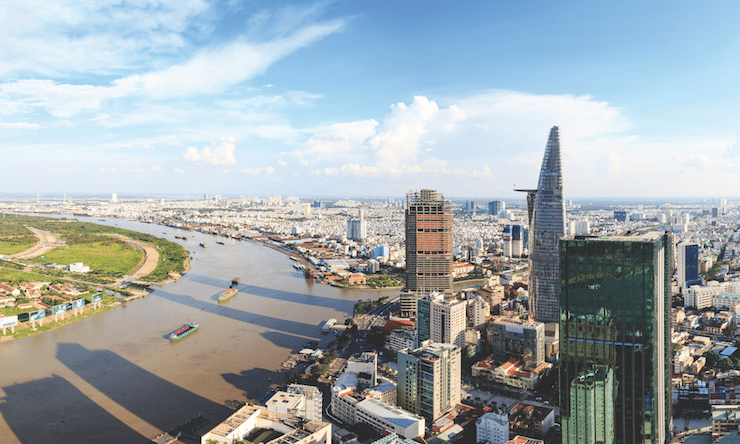Can foreign buyers set up a company to invest in real estate in Vietnam?

Vietnam’s policy of opening up to foreign investment in real estate since 2015, has allowed the country to enjoy a great economic growth.
This thriving and profitable market is attracting buyers and investors from all over the world, such as China, Hong Kong, Korea and Singapore.
These buyers have expressed a strong interest in investing in this booming country, particularly in Hanoi and Ho Chi Minh.
This upward trend in property purchase and investment will not wane in the next four to five years.
On the contrary, it will continue to grow steadily, representing a profitable opportunity for foreigners.
Vietnam’s economy is one of the fastest growing in the world, with growth of 7.1% and 6.8% recorded in 2018 and 2019 respectively.
Therefore, growth has a significant effect on the local market. In addition, the surge of a middle and high income population has made housing and real estate affordable for many Vietnamese and foreigners.
Every year, 1.5 million Vietnamese out of a total population of 95 million are in the middle class.
This is why a large number of foreigners come to settle in different sectors, and the real estate sector is one of the most in demand.
But are foreign investors allowed to set up a company for the purpose of doing real estate in Vietnam? Yes, foreigners are allowed to do so with a 100% foreign-owned company.
How to establish a real estate company?
The minimum legal capital to set up a 100% foreign-owned real estate company for real estate investment in Vietnam is VND20 billion. (approximately 866,000$ depending on the daily exchange rate)
The duration to set up a company takes about 20 to 30 working days.
In general, the following are the steps for setting up a real estate company in Vietnam:
- Apply for an investment registration certificate.
- Obtain a business registration certificate.
- Register the company stamp.
- Open a bank account for the company.
- Pay the licence fee and carry out the initial tax and accounting procedures.
Type of real estate company
The most common type of legal entity for foreigners is the foreign-owned real estate company.
Depending on the type of business, a foreign real estate company can be classified into the following categories:
- Real estate brokerage service. To offer a real estate brokerage service, you must have at least two people with a real estate brokerage certificate.
- Real estate trading. Carrying out real estate transactions such as renting houses and properties for subletting, building condominiums (buildings) on the land, participating in part or all of real estate developments, and others.
- Property management and advisory services. Providing real estate management and advisory services in accordance with Vietnamese law.
- Real estate dealing brokerage service. To provide real estate brokerage services, it is necessary to have at least two persons with a real estate brokerage certificate. One of these two persons must be the manager of the dealing room.
Read also our article the best cities to buy real estate in Vietnam.
Source: cekindo.vn
Properties that may interest you
Questions about real estate for foreigners in Vietnam?
Find the answers on our Frequently Asked Questions page.
Buying Real Estate in Danang: What You Need To Know
Why buying real estate in Danang? The city is one of the most important in Vietnam and attract Vietnamese and international investors.
- Among the fastest growing economies globally
- A strategic location in Asia
- Very supportive government policies
- Openness to the world thanks to new trade agreements
- A large and dynamic population
- A young population
- A boom in the tourism industry
- Major investment in infrastructure development
- Ease of doing business with relatively low costs
- Why Vietnam can be considered the next China

